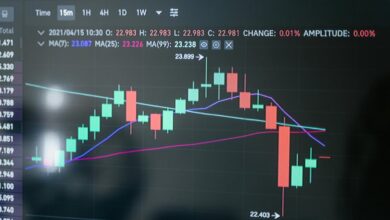Thejavasea.Me Leaks Aio-Tlp287

The recent leak of Aio-Tlp287 by thejavasea.Me has raised significant concerns regarding data integrity and security. Sensitive personal information, financial records, and communication logs are now compromised. This incident highlights the vulnerabilities present in current cybersecurity frameworks. Organizations must assess their defenses thoroughly. The implications of such a breach extend beyond immediate data loss, posing risks of identity theft and reputational damage that warrant deeper examination.
Understanding Aio-Tlp287: What Happened?
What implications did the leak of Aio-Tlp287 carry for the cybersecurity landscape?
The Aio Tlp287 overview suggests a significant breach in data integrity.
Leak analysis reveals vulnerabilities in existing security protocols, necessitating immediate reevaluation of defensive measures.
As the digital realm increasingly prioritizes autonomy, this incident underscores the urgent need for enhanced cybersecurity frameworks that can withstand evolving threats and protect user freedom.
The Scope of the Leak: Data Involved
The recent leak of Aio-Tlp287 exposed a vast array of sensitive data, raising significant concerns within the cybersecurity community.
Various data types, including personal identification information, financial records, and communication logs, were compromised.
The leak severity is amplified by the potential for misuse of this information, prompting urgent discussions on data protection measures and the need for enhanced security protocols to safeguard user information.
Implications for Individuals and Organizations
The ramifications of the Aio-Tlp287 leak extend beyond the immediate exposure of sensitive data, fundamentally affecting both individuals and organizations.
Individuals face heightened risks of identity theft, while organizations must reassess their data protection protocols.
An effective organizational response is crucial; failure to address vulnerabilities can lead to reputational damage and regulatory penalties, underscoring the importance of robust security measures in a digital landscape.
Cybersecurity Best Practices to Mitigate Risks
Although cybersecurity threats continue to evolve, implementing best practices can significantly mitigate risks associated with data breaches like the Aio-Tlp287 leak.
Key strategies include comprehensive employee training to enhance awareness of phishing and social engineering tactics, alongside establishing a robust incident response plan that ensures rapid detection and containment of breaches.
Together, these measures foster a proactive security posture, safeguarding sensitive information effectively.
Legal and Ethical Considerations Surrounding Data Leaks
While organizations strive to protect sensitive data, the legal and ethical implications of data leaks demand careful consideration.
Data ownership remains a contentious issue, as breaches often violate individuals’ rights to their information.
Ethical hacking can play a vital role in preemptively safeguarding data, yet it raises questions about consent and accountability.
Ultimately, navigating these complexities is crucial for fostering trust and compliance in the digital landscape.
Future of Data Privacy in the Digital Age
The future of data privacy is increasingly shaped by evolving privacy regulations and the rapid advancement of technology.
Legislative frameworks are adapting to address new challenges posed by digital interactions, while technological trends such as artificial intelligence and cloud computing present both opportunities and threats to personal data security.
Analyzing these dynamics is essential for understanding the implications for individual privacy in a digital landscape.
Evolving Privacy Regulations
As digital technologies continue to advance at an unprecedented pace, evolving privacy regulations are becoming increasingly critical to safeguarding personal data in the digital age.
These regulations address data sovereignty and bolster consumer rights, ensuring individuals retain control over their information.
Impact of Technology Trends
Although technology trends such as artificial intelligence, blockchain, and the Internet of Things are reshaping the digital landscape, their implications for data privacy warrant careful examination.
As digital transformation accelerates, technology adoption raises concerns about data security and user autonomy.
The balance between innovation and privacy protection is crucial, necessitating robust frameworks to safeguard personal information in an increasingly interconnected world.
Conclusion
In conclusion, the breach of Aio-Tlp287 highlights significant vulnerabilities within data security frameworks, necessitating immediate attention from both individuals and organizations. Notably, a recent study indicates that 60% of small businesses close within six months of a cyberattack, underscoring the critical need for robust cybersecurity measures. As the digital landscape continues to evolve, prioritizing data protection strategies will be essential to safeguard sensitive information against future threats and maintain trust in digital communications.




